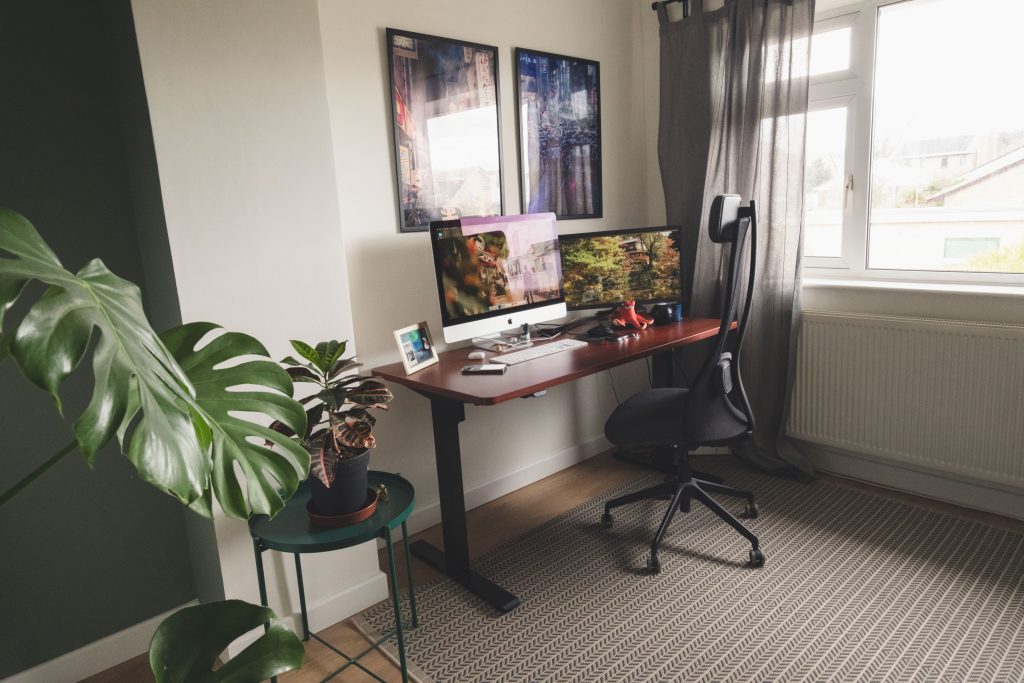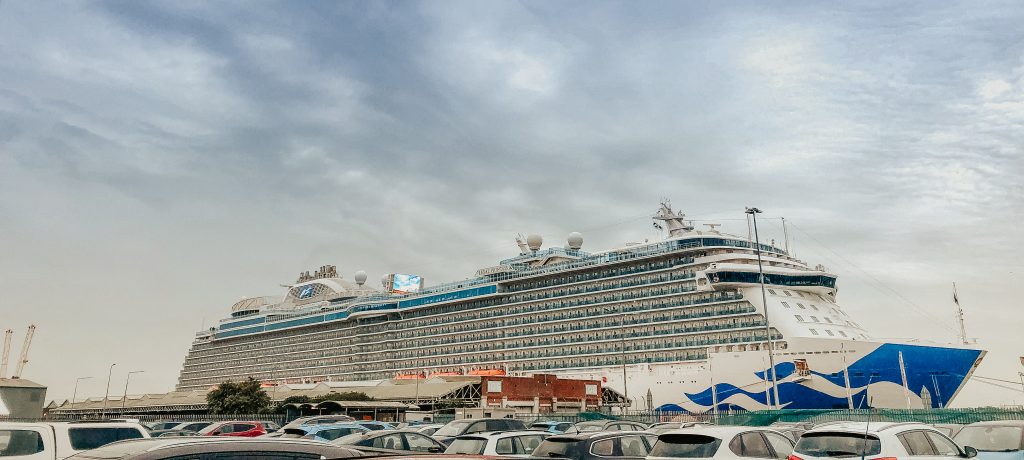You’re excited about travelling abroad but you’re not sure how to start preparing. Don’t worry, we put together a comprehensive international travel checklist to make it easy for you. You’ll even have a packing checklist so you don’t forget any essentials.
Download our travel packing checklist here
There are many things to consider when choosing to travel internationally and it’s often one of the best adventures. Having a checklist will help you plan things ahead of time and not just book hotels or accommodation. But there’s a lot of things to consider, trust us, we’ve been travelling for over a decade! We want to save you time so we’ve compiled an easy to follow international travel checklist for your next journey abroad.
Table of Contents
- Picking your destination
- Travel Safety
- Vaccination
- Getting your Visa
- Check COVID-19 documentation requirements
- Tickets & Accommodation
- Book your car and experiences
- Learning the local culture
- Picking your luggage
- International Travel Packing Checklist
- Clothes & Accessories
- Toiletries & Miscellaneous
- Essentials for your carry-on
- Pre-travel preparations
- Get transportation to and from the airport
- Tell your bank
- Weigh your luggage
- Children & Pets
- Final Checklist before you go
Picking your destination
Picking your destination is the first step and a very important one too. Not only that you need to decide your destination based on the weather but also in terms of safety. Most places are generally quite safe and welcoming to tourists but you should always check the local government requirements to ensure it’s sound to visit a destination.
There are some places in the world that will require extra care while abroad. Your government will have a dedicated travel section which outlines exactly which destinations are safe to visit. The information is usually comprehensive and easy to understand and it even includes advice on what to expect from the country you wish to visit.
Make a shortlist with all the places you wish to visit. Select one and let’s start planning!
Travel Safety
Now that you’ve decided where to go, it’s time to start preparing properly. One of the most important steps on a travel checklist is usually the most ignored: travel insurance.
We cannot stress the importance of getting travel insurance in advance. There are so many stories from seasoned travellers and the easiest way to avoid any horror stories is to invest in good travel insurance. There are many in which you can rely on sound travel insurance.
You can book it for the duration of your trip with a very good company like SafetyWing or WorldNomads.
Alternatively, you can check with your current credit card company to see if they offer you any travel insurance premiums for an extra fee. It’s often worth checking this as for just a few more dollars a month you can get covered every time you travel abroad.
Have a list with all emergency contacts you will need during your trip: your closest family and friends, also local consulates and embassy as well as emergency numbers for the state department. You never know when you need assistance, so it’s best to have all these kept safe.
If your government offers you alerts for your destination, sign up for them to be kept up to date on all upcoming and current travel restrictions, strikes, and areas of political unrest.
Vaccination
You should note that sometimes it can take months before you are up to date with all your vaccines, and as such if you are planning on travelling to exotic destinations, you should look into this sooner rather than later.
Some vaccines also require multiple shots which need to be done and rebooked well in advance. Once you decide to visit a destination check to see the entry requirements and check which vaccines are needed. For example, we needed quite a few before our trip abroad to India. There are several dozens of countries that require proof of a yellow fever vaccination.
Always keep your vaccine certificate handy, ideally in your carry-on, right next to the passport and money. You can also see the CDC-recommended shots here. You’ll notice that each country is different.
Getting your Visa
Some countries will allow you to enter their territory for up to 90 days, visa-free. Of course, every country is different and your entry requirements will vary depending on the passport you have.
On your local government website, you will find a dedicated space where you can find visa requirement information. To be sure, also check your destination’s travel page to see if they require specific visas.
Some visas take a while to be processed, while others can be obtained upon entry into a specific country. Some countries, like Canada for example, allow you to order your ETA online for a very small cost.
Check COVID-19 documentation requirements
We all know that the whole of 2021 was all about checking documentation requirements in light of the Covid-19 pandemic. It looks like this is going to continue in 2022 so it’s crucial that you check what you need before you leave the country and what you need when you return. England changes their requirements overnight while we were abroad so we needed to act fast to be allowed back home.
You might need a vaccination card, a negative test and a passenger locator form. Check all requirements in advance at least 72 hours before departure to be safe and up to date.
Tickets & Accommodation
Once you have checked that it is safe to travel to your chosen destination and organised any potential vaccines and visas, the fun bit of organising commences. This includes booking your tickets, your accommodation, researching all the things that you would like to visit and see, starting your packing list and getting increasingly excited as the days roll by and your holiday approaches.
When booking your flights make sure you do so early on in order to avoid price hikes and disappointment.
The easiest way to search for flights is to look at comparative flight websites such as Skyscanner or Expedia, as they give you multiple flight options depending on your budget and the duration of your holiday.
Book your car and experiences
You may want to consider booking a car while you are abroad to enjoy a little more from that destination. Perhaps you’ll want to take day trips or see some of the more off the beaten path attractions. We always recommend booking your car well in advance
Some popular destinations, like Mallorca, run out of cars to rent if not booked well in advance. So you definitely don’t want to leave this for the last second. Book with Europcar or Discover Cars.
Some experiences book up very fast as well, especially in popular destinations like Tokyo, London or Paris.
Learning the local culture
Researching local culture is not only important for your own planning but is also an integral part of learning about the place you will be visiting. Travel is very much an activity that opens the mind, and to be respectful of a new country and its traditions is a vital component of the process and the fun of exploring a new place.
We recommend learning the local language to a point where you feel comfortable saying hello, thank you and goodbye. Anything extra will be very much appreciated by the locals.
Picking your luggage
Depending on the duration of your holiday you might want to take different luggage with you. If you are travelling for anything up to a week, usually you will need a suitcase to check-in alongside your carry-on. If you are travelling for less than a week, usually you will be okay with just a small cabin bag alongside your carry-on. Anything longer than a week and you might need a larger suitcase to check in or two suitcases. This is very much personal to you but here is a suitcase size guide for you.
There are many luggage options that you can pick from, and they all have their own sort of charm, some options you may want to consider:
- Suitcase with wheels, either 2 wheels or 4. If you opt for the 2 wheeled suitcases be prepared to have to wheel your suitcase behind you. If your suitcase is particularly heavy this may be a less suitable option. The 4 wheeled suitcase is a better option if your suitcase will be heavy as it will alleviate stress from your wrist and allow you to glide your bag more effortlessly.
- Duffel bags are the easy and effortless way to travel if you are travelling for a relatively short period of time. These are great for weekend getaways as you don’t need to pack too much and you can sling them over your shoulder. One thing to watch with this is their weight when you overpack them as they can become uncomfortable to carry. More often than not, depending on the size, duffle bags can come on board the plane with you.
- Backpack, wheeled or otherwise. A wheeled backpack is particularly useful if you will be going through various types of terrain. A regular backpack is similar to the duffel bag, though maybe smaller in its capacity for packing.
- Cabin suitcases are the perfect option if you are travelling for anything up to 4 days. The cabin suitcase allows you to pack well but still take your luggage on board.
- Carry-on, the essentials bag. Everything you will need with you during your flight should be in here. Our suggestion is that you always have a carry-on, whether it is the only thing you have with you or you decide to couple it with another luggage option is a whole other story.
| Luggage Type | Length of Holiday |
| Large Suitcase | 10+ days |
| Medium Suitcase | 5-10 days |
| Duffel bag | 3-5 days |
| Backpack | 2-5 days |
| Cabin suitcases | 2-4 days |
| Carry-on | 1-3 days |
Once you have picked the type of luggage that you want to use for all your things, it is time to start planning what you will pack! In this scenario, lists become your best friend. When packing several things it makes sense to create lists. Below we give you an idea of how you can do this.
International Travel Packing Checklist
Here is the perfect place to consider what kind of activities you will be undertaking whilst you are on holiday. For instance, if you plan on hiking then you should add hiking boots and a reusable water bottle to your list. If you plan on going out to nice restaurants with a dress code then you should add a nice suit or a dress to your list. If your holiday plan is to sit by the beach soaking up all the sunshine you can get, then you should add a swimsuit, sun cream and a great book to your list.
Download our travel packing checklist here
Clothes & Accessories
Your packing list will be very different depending on where in the world you will travel to. But there are a few things you should pick for every single destination and we’re going to share them all with you. We also have many packing guides to help you bring the right clothes and accessories with you.
- Sturdy backpack – You need to make sure you have a place for all your electronics. You’ll want your laptop, tablet and camera with you during your trip. And for that, you need a sturdy backpack you can rely on. It will also be your carry-on luggage as you can bring it with you on board. We use a Thule backpack which we love and recommend.
- Money Belt – The perfect way to enjoy care-free vacations while making sure you have your passport, money and cards safe. You can safely protect your belongings and it’s super comfortable to wear. Very useful at all times. We do recommend them. And honestly, we’ve been using them for years.
- Passport Holders – Something extra to protect your passport. I like to use a simple passport cover to ensure I don’t damage my passports when I travel abroad. It’s affordable and so good. You can even get personalised ones if you prefer.
- Organic t-shirts – You’ll want to bring good quality t-shirts made from organic cotton. These will last a long time and when they are travel-related they are even cooler. We recommend vegan ones that are made from sustainable materials. Ultimately, travel can cause a lot of emissions so why not invest in great quality clothes that offset some of it?
- Incredible Travel Pants – We are huge Bluffworks fans and love their products so much. We do recommend them for your travels. Their pants are so comfortable and wrinkle-free, making them stylish and awesome for trips. You can wear them on a plane and be super comfortable but also look incredible. Those are the sort of travel clothes I love so much, definitely add them to your packing list.
- Packing Organisers – I absolutely adore my packing cubes. So easy to handle my clothes and accessories and I get so much more space in the suitcase. If you like to travel light and enjoy going abroad with carry-on suitcases only, you should definitely consider packing cubes. One of the best things to add to your international packing checklist.
Toiletries & Miscellaneous
Once your clothing and accessories checklist is ready, it is time to consider all the toiletries you may need, in this checklist we also included some medical products that you may want to consider taking with you depending on your travel destination:
- Toothbrush, toothpaste, floss
- Deodorant
- Perfume, cologne
- Face cream, eye cream
- Makeup
- Makeup remover
- Hairbrush, hair bands, bobby pins
- Shampoo and conditioner – sometimes your hotel will provide these too
- Soap – your hotel should have some also
- Shaving kit with extra razors
- Scissors, nail clippers, nail file, tweezers – these all have to be in your checked luggage for security reasons. If you want a nail file in your carry-on, make sure it is a paper one
- Hair products
- Sewing kit – sometimes your hotel will provide this
- Contact lenses and solution, prescription glasses – always a good idea to have some spare contact lenses with you in your carry-on
- Facewash
- Feminine hygiene products – opt for more eco-friendly options, such as organic cotton tampons/pads, a menstrual cup and/or reusable underwear, they are better for your body and less plastic waste for the planet to drown in
- Personal hygiene items
- Prescribed medication
- Copy of your prescription – some medicines are regulated differently in different countries
- First aid kit – it’s always a good idea to have a small First Aid Kit on you
- Over the counter pain relief, such as paracetamol or ibuprofen – remember to take children’s strength if you are travelling with children
- Thermometer
- Allergy medicines
- Eyedrops
- Laxative, diarrhoea, stomach cramp medicines – particularly if you are travelling to places where you might be more sensitive to the spices used in the local cuisine
- Insect repellent
- Suncream
- Sunburn relief – aloe vera gel is an excellent and natural product
Essentials for your carry-on
Finally, with everything set for your checked luggage, it is time to consider all the essential items you may need in your carry-on. Note that we have included some toiletries here that we also mentioned above.
Often it is a good idea to have all the very essentials with you in case your suitcase takes a detour or gets lost. Whilst we hope this doesn’t happen to anyone, it is sadly one of the perils that travellers do indeed face. A well-packed carry-on is important, especially during long-haul flights as it is your source of comfort and knowledge that no matter what, you are prepared for at least a night without the rest of your things.
- Wallet
- Passport
- Documents – tickets, accommodation details, visa
- Cash (your currency & the currency of travel destination), cards
- ID
- Phone
- Laptop
- iPad, Tablet
- Kindle or book
- Headphones – noise cancelling are usually better as flights can be quite loud
- Portable charger & cables – a good battery pack always comes in handy
- Snacks and water
- Travel pillow – my memory foam travel pillow fits comfortably around my neck but is still firm enough to support it
- Sleeping mask
- Earplugs
- Warm jumper
- Scarf – doubles up as a blanket
- Comfortable shoes and socks
- Compression socks or tights
- Toothbrush, toothpaste
- Hairbrush
- Deodorant
- Sun cream, moisturiser
- Lip balm
- Vitamin C
- Spare contact lenses, prescription glasses
- Sunglasses
- Prescription medicines you may need + copy of your prescription
- Spare underwear
- A change of clothes
Pre-travel preparations
There are certain things you should organise before leaving in order to avoid having to deal with any issues or stress during your travels. After all, the entire point of travelling to a new destination whether for work or for leisure is to be present in that destination.
Get transportation to and from the airport
Firstly, how are you getting yourself to the airport? Have you planned a taxi, Uber, or car to pick you up and drop you off, or will you be using public transport? Either way, make sure you look ahead for any travel disruptions that may lead to you missing your flight, and plan for them in your travelling schedule.
Tell your bank
Prior to travelling it is important to tell your bank, especially if you are planning to use your debit and credit cards whilst travelling. If you make a purchase that the bank deems unusual they have the right to block your card in order to protect you from fraud, which while a great security measure is incredibly frustrating if you then have to spend a whole load of time and potentially money getting in touch with your bank from overseas to verify that, yes, it is actually you who is trying to make a purchase. It happened to us while we were in Japan trying to buy our engagement ring and honestly, it wasn’t pretty.
Weigh your luggage
Don’t forget to weigh your luggage before you get to the airport. some airlines are very particular about how much hand luggage you can bring with you on board. Some airlines will make you pay extra at the airport which is a premium fee. Others won’t even allow you to board. Better safe than sorry.
Children & Pets
Making care arrangements for loved ones, such as your children (provided they are not travelling with you) or your pets is an important task as you want them to be safe and happy whilst you are away. If you are travelling without your children, where are they staying? Are they staying with their grandparents, are they sleeping over at their friend’s house whose parents you know very well, or are they in boarding school? Either way, you want to make sure that your children know that you will be travelling for a while and that they are in a safe place. Make sure they know where you are staying, provide them with the hotel numbers and if you will be buying a local sim card at your destination make sure you have a way of sending them your direct number.
If on the other hand, it is your pet that you need to make arrangements for those arrangements will largely depend on the type of pet you have. For lower maintenance creatures such as fish and reptiles, you may just need to ask your neighbour to pop in daily to check on them, feed them and make sure they have enough water. If you have someone coming over to your house to check on your pets you can also ask them to water your plants!
If you have a cat, a dog or rodents such as hamsters, guinea pigs or bunnies then you may need to look into getting a sitter that can stay in your house whilst you are away. Alternatively, if you have a dog you could check him/her into a kennel whilst you are away, in other words, “doggie hotel”. Make sure you do your homework about the kennel you are thinking of leaving your dog at, as sadly sometimes their conditions are not what you would hope them to be. It is wise to visit the kennel before committing to leaving your dog there. Occasionally another option includes asking friends or family to drop your pet(s) off with them. Try to pick someone that your pet already knows quite well so as to reduce the stress of moving them from your home (an environment they know well) to their carer’s home (an environment they are not so familiar with).
Final Checklist before you go
Remember to set an out of office response for your work emails, that provides details of whether or not you can be contacted in the event of an emergency. If you cannot be contacted, then provide the details of someone who will be covering for you.
Finally, if you are leaving for longer than 4-7 days make sure that you have emptied your fridge of all the things that might potentially go off in your absence. If you are worried about wasting food you can always give it to your neighbour, drop it off at a food bank for the homeless, or depending on the type of food, you can also pop it in the freezer for later consumption.
With everything set and ready to go, all you need to do is enjoy your holiday that you have been looking forward to oh so much. You’ve now reached the end of the checklist and are ready to go! Are you excited about your international trip?









Leave a Reply